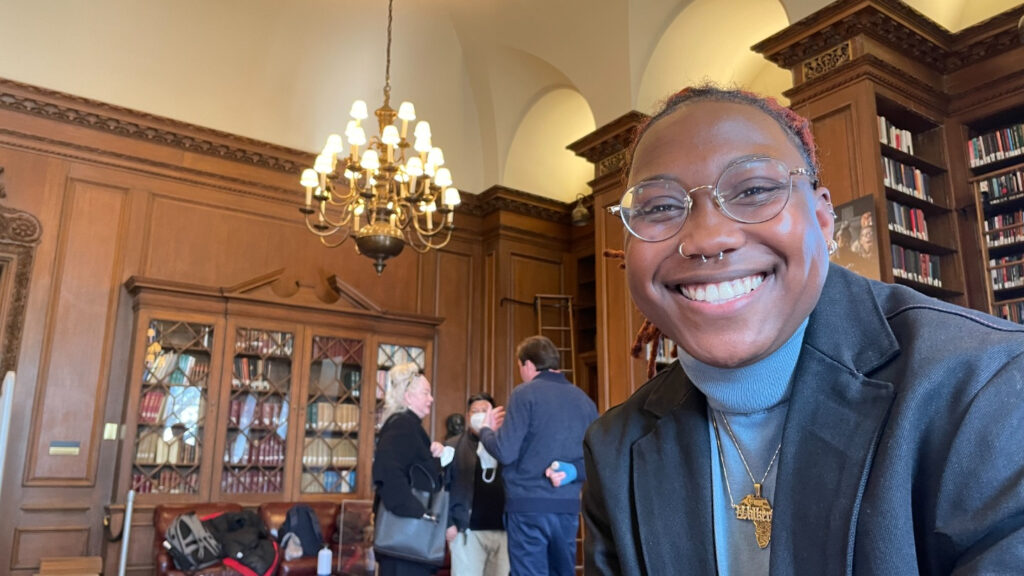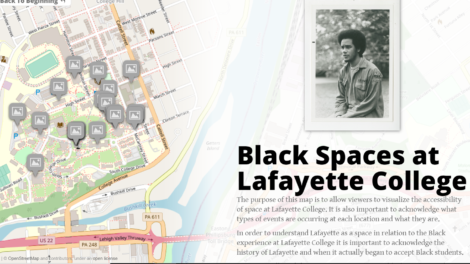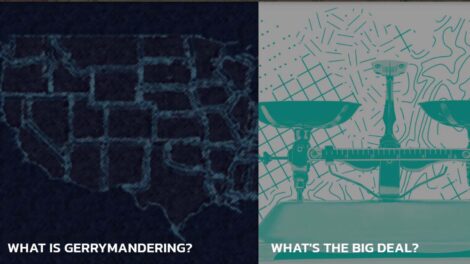Archives project chronicles the history of Black experiences at Lafayette

Xavier Walker ’22 chronicled the life, activities, and organizations of Black students at Lafayette, creating an interactive, multi-modal gallery
By Bryan Hay
Chronicling the life, activities, and organizations of Black students at Lafayette through the decades, Xavier Walker ’22 created an interactive, multi-modal gallery of more than 600 records, photographs, and artifacts for a senior project.
Unveiled April 28 in Kirby Library, the ABC (Association of Black Collegians) Archives Project chronicles the history of various Black experiences at Lafayette, featuring copies of the ABC Black Manifesto of 1969 in which Black students at Lafayette demanded a house to serve as a cultural center as well as changes to end racial attitudes on campus; the flyer for the first Black arts festival in 1971; copies of the AYA journal; and newspaper clippings about ABC’s activities and events.
Guests accessed the materials on an array of laptops set out in the library, pored through physical artifacts, and gazed on tall vertical panels resting on oak bookshelves that displayed text and photos about the creation of ABC and the Black Manifesto, Black spaces on campus, the national Black campus movement that occurred between 1965 and 1972, and other milestones.
“I started with this project as a freshman,” says Walker (English and women’s, gender, and sexuality studies). “I knew that it would present and reveal this history for the first time in this kind of format, which is why it’s so important that it continues long after I graduate.”
“Xavier’s 2019 foundational research on the history of the ABC and the Black experience in the College Archives inspired me to mount the spring 2020 exhibition in Skillman,” says Elaine Stomber ’89, college archivist.
Due to the pandemic shutdown in March of that spring, the exhibition wasn’t seen by many people, and Stomber transitioned a selection of the archival content to an online exhibit.
Last fall, she created a guide to ABC’s archived records so that future researchers have online access to a comprehensive resource containing the organization’s early records. “The materials highlighted in Xavier’s digital ABC Archives project and the Kirby exhibition are drawn from this collection,” Stomber says.
During the course of his project, Walker learned to ask for help, discovering “that so many people here at Lafayette are willing to provide support.”
When asked what was learned from the array of digitized ABC records, Walker paused and replied “respect.”
“The Black students at Lafayette who came before us were way more radical than we are today,” says Walker, who has been accepted into a post-baccalaureate fellowship in Haverford College’s special collections. “They are a source of inspiration.”

